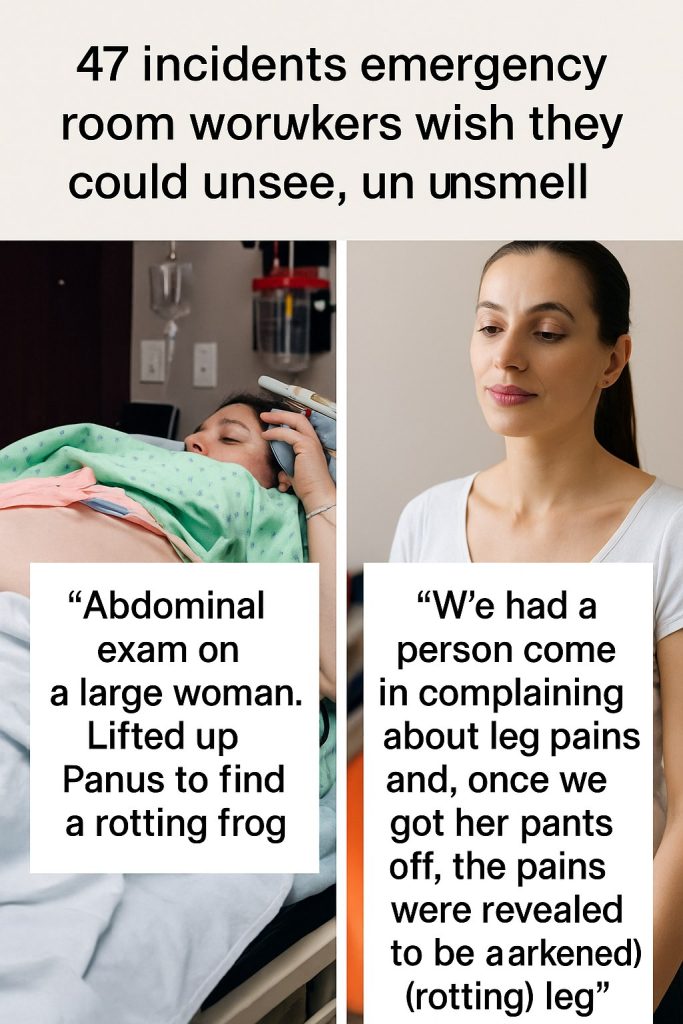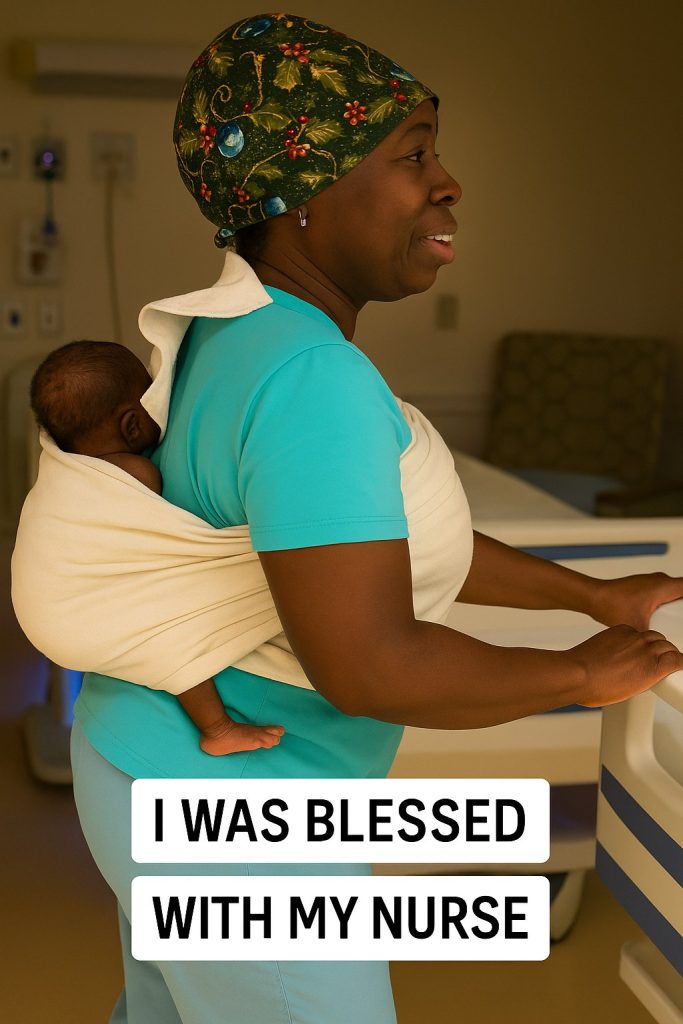Emergency rooms (ER) are renowned for being high-pressure environments where healthcare workers face not just a medical challenge, but also an emotional, sensory, and sometimes downright bizarre ordeal. Recently, a collection of 47 unsettling and unforgettable incidents that emergency room workers wish they could unsee, unhear, or unsmell has surfaced on social media, captivating public attention and shining a light on the often overlooked day-to-day realities faced by those on the hospital frontlines.
These stories—shared anonymously by ER professionals and compiled in a viral post—range from the heart-wrenching to the downright grotesque, illustrating the extremes of patient care situations that are far from what most people imagine when thinking about emergency medical work.
One ER nurse recounted a case that began as a seemingly routine complaint of leg pain. “We had a person come in complaining about leg pains and, once we got past the initial check-up, we discovered it was caused by a massive infestation of maggots that had embedded beneath the skin—a rare and gruesome medical emergency none of us were prepared for,” she shared.
Another common theme throughout the shared incidents involves unexpected behavioral challenges. From patients arriving intoxicated or under the influence of drugs making erratic demands or threats, to others who disclosed disturbing personal traumas mid-examination, ER workers detailed their experiences in managing both medical and psychological crises simultaneously. One anonymous paramedic said, “Some nights, it isn’t what you see medically that sticks with you, but those moments when you hear things no one should ever have to say out loud in a hospital.”
Unforgettable smells are another sensory layer these workers face daily. Several nurses described inhaling odors from infections, chemical spills, or bodily fluids that linger long after patients have been treated and discharged. “There was one case where we had a patient who hadn’t bathed in weeks and smelled so strongly of sepsis and infection that it became physically overwhelming,” recalled an ER doctor. “You learn to push past it, but these things stay with you.”
The sheer breadth of these incidents underscores the complexity of emergency medical care today. They illustrate the delicate balance healthcare professionals must strike between providing life-saving care and managing their own emotional and physical toll in environments often marked by unpredictability.
Experts suggest that sharing these stories publicly serves an important purpose—not only validating the experiences of healthcare workers but also educating the public. “People should understand that when they visit an ER, they’re not just walking into a place of science and medicine, but a space filled with human vulnerability, unpredictability, and sometimes traumatic realities,” explains a mental health advocate working closely with hospital staff.
As hospitals continue to struggle with rising patient volumes, stretched resources, and sometimes underappreciated staff, such candid glimpses into ER life help foster empathy and respect. The viral post of “47 incidents ER workers wish they could unsee, unhear, or unsmell” has sparked widespread conversations online, prompting calls for more support, awareness, and improved working conditions within emergency care settings.
In the end, these stories remind us that behind every hospital visit lies a human story—sometimes inspiring, sometimes tragic, and often memorable in ways that few outside the healthcare field could fully comprehend.



